In a world where the importance of sustainable practices is becoming increasingly evident, PachaMama Foods stands out as a leading advocate for sustainable farming. With a firm commitment to nourishing lives, while preserving the environment, PachaMama Foods has embarked on a mission to revolutionize the way we grow, source, and consume food. Through their innovative practices and community-focused initiatives, they are paving the way for a healthier planet and thriving communities.
1. What is Sustainable Farming?
Sustainable farming can be defined as an approach to agriculture that aims to meet the needs of the present generation without compromising the ability of future generations to meet their own needs. It revolves around three key principles: environmental stewardship, economic viability, and social responsibility. By implementing regenerative practices, minimizing chemical inputs, and prioritizing the well-being of ecosystems and communities, sustainable farming ensures a more balanced and resilient food system.
2. PachaMama Foods: A Commitment to Sustainable Farming
At the heart of PachaMama Foods’ mission is its unwavering commitment to sustainable farming. Founded on the belief that healthy food starts with healthy farming practices, PachaMama Foods has taken bold steps to transform the food industry. Their mission statement reflects their dedication to promoting sustainable agriculture while supporting local farmers and empowering communities. Through collaborations with like-minded partners and the implementation of cutting-edge technologies, PachaMama Foods is at the forefront of driving positive change.
3. The Benefits of Sustainable Farming
- Environmental Benefits
Sustainable farming practices offer numerous environmental benefits. By prioritizing soil health and biodiversity, farmers can enhance the natural fertility of the land and reduce the need for chemical fertilizers. Additionally, practices such as water conservation and integrated pest management contribute to the preservation of precious resources and the protection of ecosystems. Sustainable farming mitigates soil erosion, reduces greenhouse gas emissions, and promotes overall ecosystem resilience. - Social and Economic Benefits
Sustainable farming not only benefits the environment but also uplifts communities and strengthens local economies. By supporting local farmers and sourcing from nearby regions, PachaMama Foods fosters the growth of local food systems. This, in turn, reduces dependence on long-distance transportation, supports small-scale farmers, and creates opportunities for economic development. Moreover, sustainable farming practices often prioritize fair trade and ethical sourcing, ensuring that workers are treated justly and communities are empowered. - Health Benefits
Perhaps one of the most significant benefits of sustainable farming lies in the impact it has on human health. By avoiding the use of synthetic pesticides and genetically modified organisms (GMOs), sustainable farming produces food that is free from harmful chemicals and retains its natural nutritional value. Furthermore, sustainable farming practices promote the use of organic methods, which have been found to enhance the nutrient content of crops and contribute to the overall well-being of consumers.
4. Implementing Regenerative Practices
To achieve sustainable farming, it is crucial to implement regenerative practices. Here are some key steps:
- Soil Health and Biodiversity: Nurturing healthy soil by adopting practices such as cover cropping, crop rotation, and composting. Encouraging biodiversity through the preservation of natural habitats and the promotion of beneficial organisms.
- Water Conservation: Implementing efficient irrigation systems, capturing rainwater, and managing water resources responsibly to minimize waste and ensure long-term water availability.
- Integrated Pest Management: Employ strategies like biological control, crop rotation, and trap cropping to manage pests and diseases while minimizing the use of synthetic pesticides.
- Crop Rotation and Diversification: Rotating crops to improve soil fertility, reduce pest and disease pressure, and break cycles of nutrient depletion. Diversifying farming systems by integrating crops, livestock, and agroforestry.
- Composting and Waste Management: Implementing composting systems to recycle organic waste, reduce landfill contributions, and create nutrient-rich soil amendments.
5. Supporting Local Farmers and Communities
PachaMama Foods recognizes the vital role of local farmers and communities in building a sustainable food system. Here’s how we can support them:
- Embrace Local Food Systems: Prioritize purchasing locally grown produce and supporting farmers’ markets, CSAs (Community Supported Agriculture), and farm-to-table initiatives.
- Fair Trade and Ethical Sourcing: Choose products that are certified as fair trade, ensuring that farmers and workers receive fair wages and work in safe conditions. Support brands that prioritize ethical sourcing practices.
- Strengthen Local Economies: Advocate for policies that protect small-scale farmers and promote local food production. Participate in community initiatives that support food sovereignty and sustainable agriculture.
6. Organic Agriculture: A Key Component of Sustainable Farming
Organic agriculture plays a significant role in sustainable farming. Key points to consider:
- Organic Certification and Standards: Understand the organic certification process and look for products that meet recognized organic standards.
- Advantages of Organic Farming Methods: Explore the benefits of organic practices, including soil health improvement, reduced environmental impact, and the avoidance of synthetic chemicals.
Conclusion
As we face the challenges of a changing climate and a growing population, the importance of sustainable farming cannot be overstated. PachaMama Foods, with its unwavering commitment to sustainable practices, is leading the way in creating a food system that nourishes both our bodies and the planet. By implementing regenerative practices, supporting local farmers, and promoting organic agriculture, we can all contribute to a healthier and more sustainable future. Together, let’s embrace sustainable farming and pave the way for a brighter tomorrow.


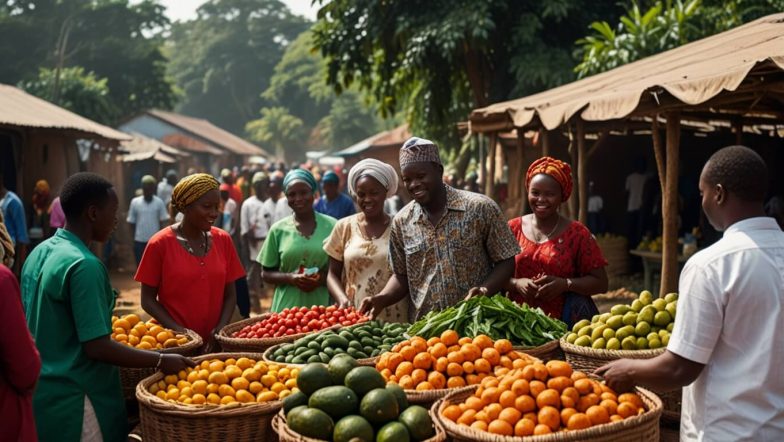
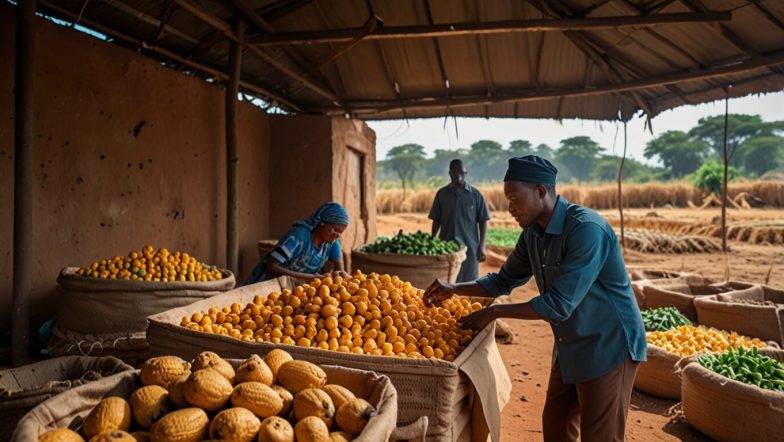
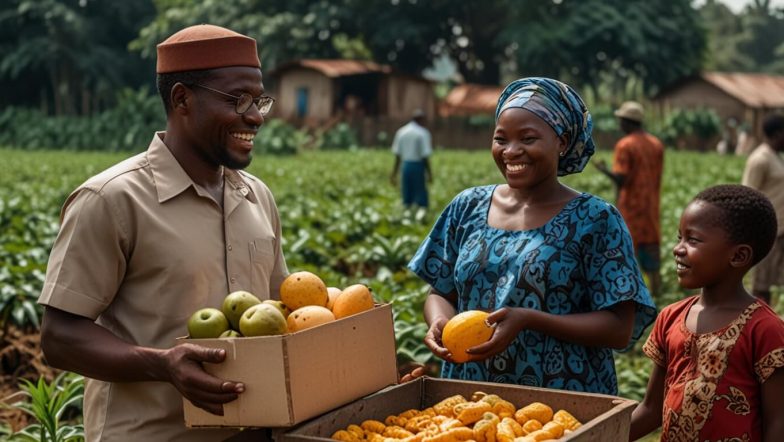
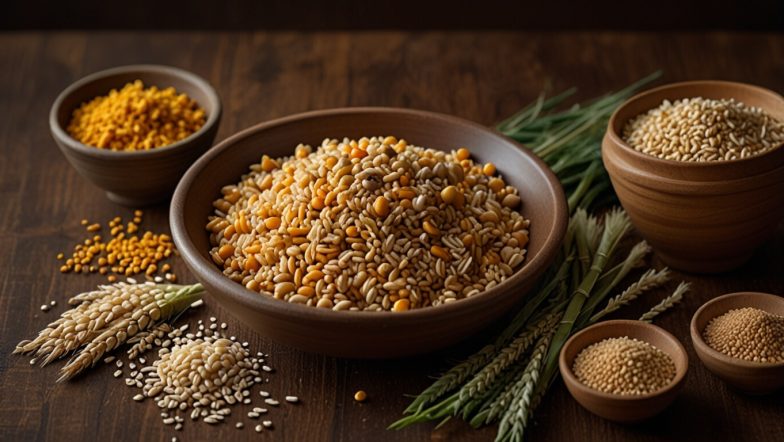
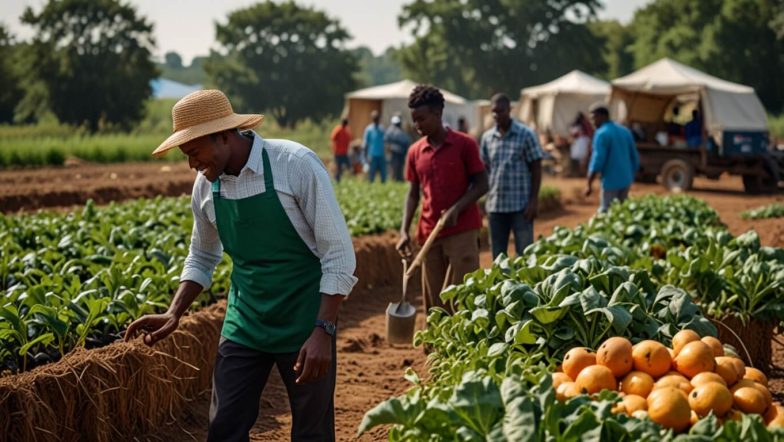
Leave a comment